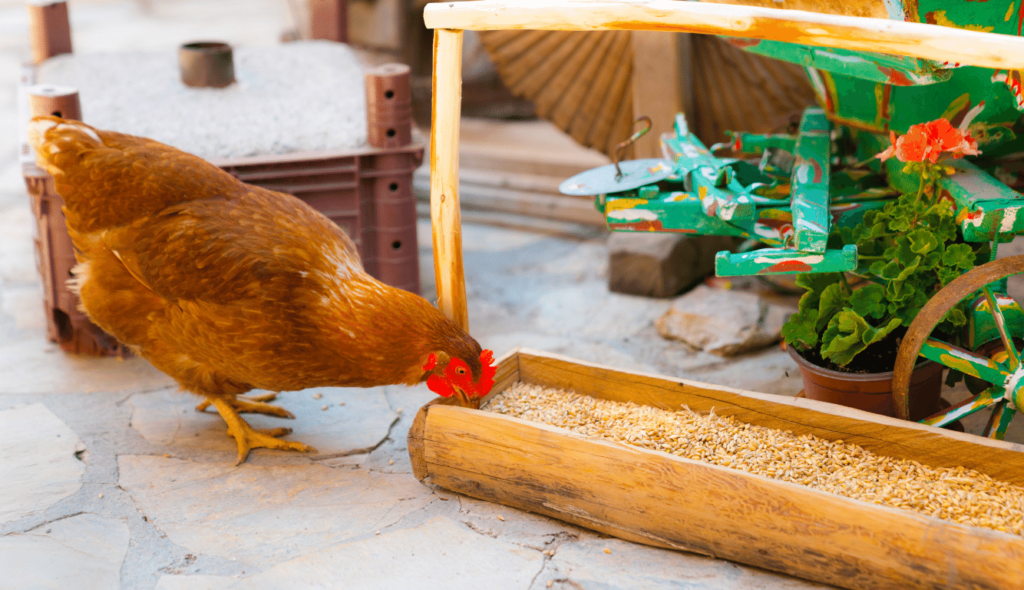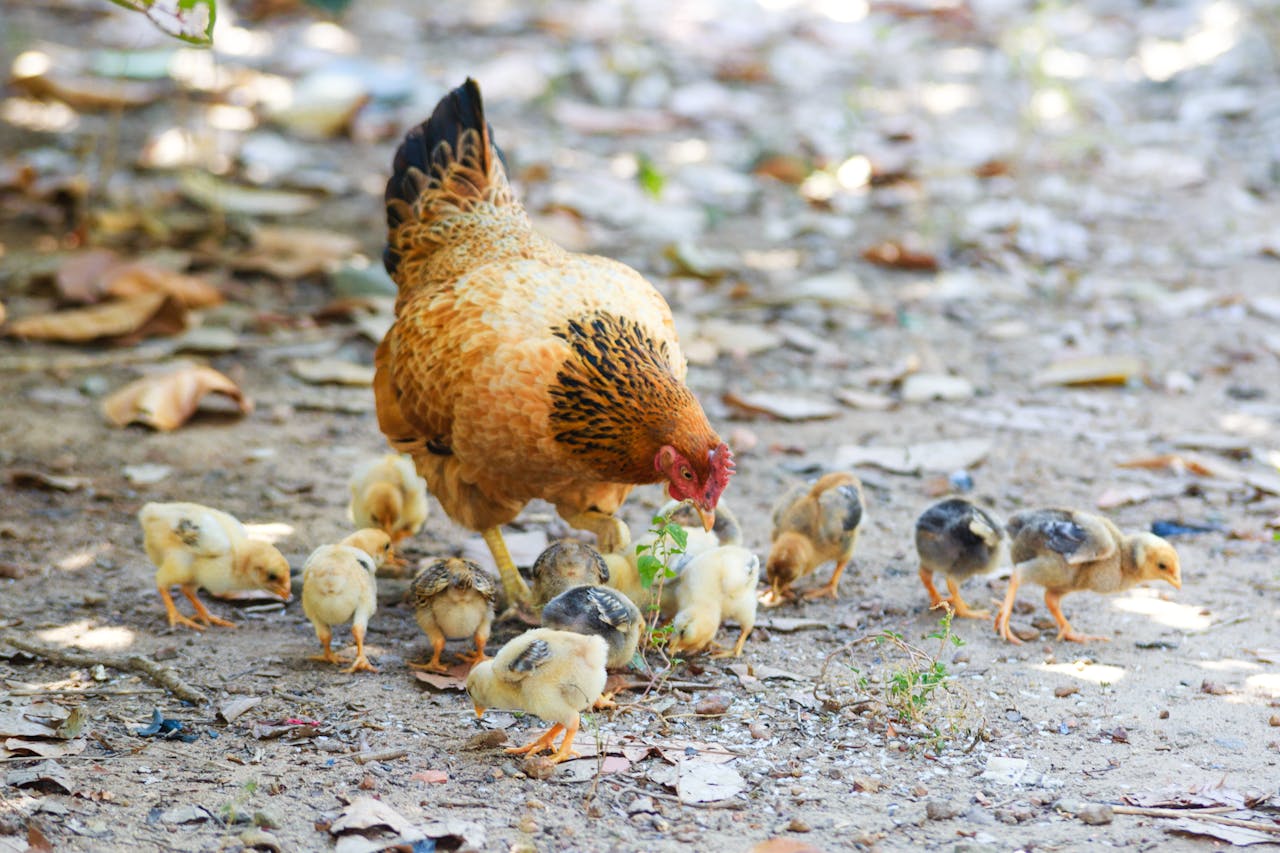Introduction
Raising backyard chickens has become increasingly popular, not only as a rewarding hobby but also as a source of fresh eggs. However, the foundation of raising healthy chickens lies in understanding and providing the right nutrition. Just like any other pet, chickens require a balanced diet to maintain their health, ensure strong egg production, and live a happy life. This blog will delve into the essentials of what to feed your backyard chickens for optimal health, highlighting the importance of a diet rich in necessary nutrients.
Understanding Chicken Nutrition
Essential Nutrients
Chickens, much like any animal, require a blend of essential nutrients to thrive. These include:
- Proteins: Crucial for growth, repair, and overall health. Chickens need high-quality protein sources for optimal development and egg production.
- Fats: Provide energy and help in the absorption of certain vitamins.
- Vitamins: Essential for immune system function and overall health. Vitamins A, B, D, E, and K are particularly important for chickens.
- Minerals: Important for skeletal health, eggshell quality, and more. Calcium and phosphorus are two critical minerals in a chicken’s diet.
- Water: Often overlooked, water is crucial for life. Clean, fresh water must be available at all times to prevent dehydration and maintain health.
The Role of Each Nutrient
- Proteins are the building blocks of the body, essential for the growth of feathers, muscles, and for the overall development of young chicks. Layers also need ample protein to produce eggs consistently.
- Fats are concentrated energy sources that also play a key role in cell structure and the health of various bodily functions.
- Vitamins support various bodily functions; for example, Vitamin A is crucial for vision and immune health, while Vitamin D is essential for calcium absorption, crucial for bone health and eggshell strength.
- Minerals like calcium are vital for developing strong bones and high-quality eggshells. A deficiency in minerals can lead to health issues such as weak shells or skeletal problems.
- Water is essential for regulating body temperature, digesting food, and eliminating waste. A chicken can consume approximately one pint of water a day, and even more in hot weather.
Ensuring your backyard chickens have access to these essential nutrients can prevent a host of health issues and promote a long, productive life. Next, we’ll compare commercial feeds and natural diet options to understand how to best meet these nutritional needs.
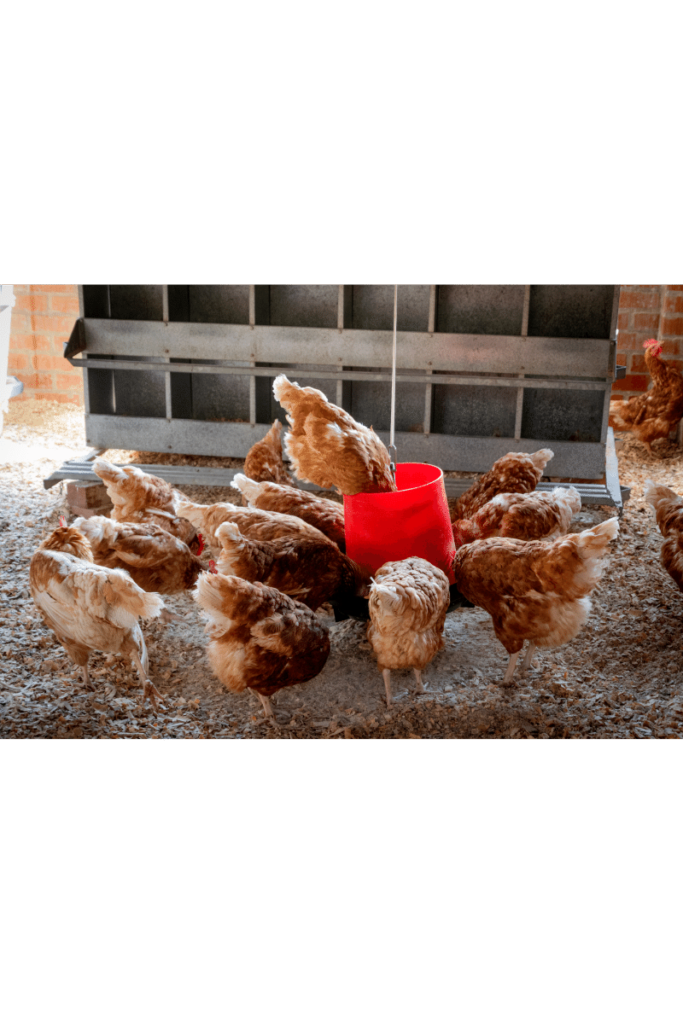
Commercial Feeds vs. Natural Diets
Choosing the right feed for your chickens is pivotal in maintaining their health and productivity. The debate between commercial feeds and natural diets often centers around convenience, nutritional balance, and personal preferences.
Commercial Poultry Feeds
Commercial feeds are formulated to provide a balanced diet, tailored to the specific needs of chickens at different stages of their lives—starter, grower, and layer feeds. These feeds typically contain a mix of grains, proteins, vitamins, and minerals to ensure your chickens receive all necessary nutrients in the correct ratios.
- Advantages:
- Nutritional completeness, minimizing the risk of deficiencies.
- Convenience and ease of use.
- Consistency in nutritional content.
- Disadvantages:
- Can be more expensive than natural diets.
- Some chicken keepers prefer feeding their flock a more natural diet.
Natural Diets
A natural diet involves feeding chickens a variety of grains, seeds, vegetables, and occasional protein sources like worms or insects. This approach can supplement commercial feeds or, in some cases, replace them entirely.
- Advantages:
- Can be more cost-effective, especially if you can grow some of the feed yourself.
- Allows for a more varied diet, which can be healthier and more stimulating for chickens.
- Disadvantages:
- Requires more knowledge and effort to ensure nutritional balance.
- Risk of nutritional deficiencies if not managed carefully.
Supplementing Commercial Feeds
Even if you choose a primarily commercial feed approach, supplementing with additional nutrients can promote optimal health and egg production. Here are some safe and beneficial supplements:
- Garden Produce: Leafy greens, squash, cucumbers, and carrots are excellent sources of vitamins and can be a healthy part of your chickens’ diet.
- Kitchen Scraps: Cooked beans, grains, and small amounts of fruits can be a treat for chickens but should not constitute more than 10% of their diet.
- Protein Boosts: Mealworms, earthworms, and cooked eggs can offer a protein boost, especially valuable during molting or for growing chicks.
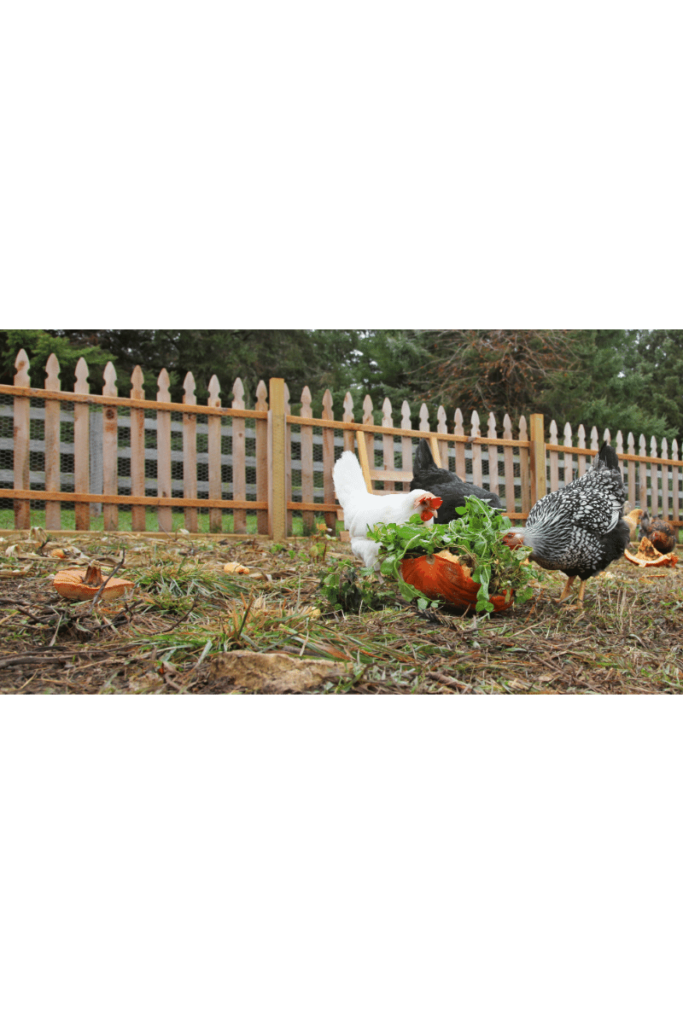
The Importance of Grit and Calcium
Grit
Chickens do not have teeth; they use grit (small stones or coarse sand) to grind down food in their gizzard, making it an essential part of their diet.
- Sourcing Grit: Grit can be purchased from pet or farm supply stores, or you can provide your own from clean, coarse sand or tiny pebbles.
Calcium
Calcium is critical for laying hens to produce strong eggshells. A deficiency in calcium can lead to soft shells or even health problems for the hen.
- Sources of Calcium: Oyster shell supplements are a common and effective way to provide extra calcium. They can be offered in a separate dish for hens to consume as needed.
Both grit and calcium supplements are inexpensive ways to ensure the health and productivity of your chickens without complicating their diet.
Avoiding Toxic Foods
While chickens are not picky eaters, certain common foods can be harmful, even fatal, to chickens. Ensuring these are kept out of reach is crucial for their health.
- Avocado (especially the pit and skin) contains persin, which is toxic to chickens.
- Chocolate and caffeinated foods can be poisonous due to theobromine and caffeine.
- Onions and garlic in large amounts can cause digestive issues and potentially lead to anemia.
- Raw beans contain lectins that are toxic to chickens.
- Citrus fruits are often discouraged as they can decrease egg production, although small amounts may not be harmful.
Preventing access to these and other toxic foods is a key part of maintaining a healthy diet for your backyard flock. Always research or consult with a vet if you’re unsure about the safety of feeding certain foods to your chickens.

Seasonal Feeding Tips
Changing seasons bring different nutritional needs and challenges for backyard chickens.
Summer
- Hydration: Increase water supply to help chickens cool down. Adding electrolytes to water can help prevent heat stress.
- Light Feeds: Offer lighter, more digestible foods, such as fruits and vegetables, to avoid overheating.
Winter
- Increased Energy Needs: Supplement the diet with grains and seeds to help maintain body heat.
- Warm Treats: Offering warm oatmeal or corn can help raise their body temperature during cold mornings.
Adjusting your feeding strategy according to the seasons ensures your chickens stay healthy and productive year-round.
Monitoring Your Flock’s Health Through Diet
Diet plays a critical role in the health of your chickens. Monitoring their condition can help you catch and address potential nutritional deficiencies or excesses early.
- Feather Quality: Poor feather quality can indicate a protein deficiency.
- Egg Production: Sudden drops in egg production can be linked to nutritional imbalances.
- Behavior: Lethargy or decreased appetite could signal health issues, possibly diet-related.
Regular observation and knowing when to consult a veterinarian are essential aspects of maintaining a healthy flock.
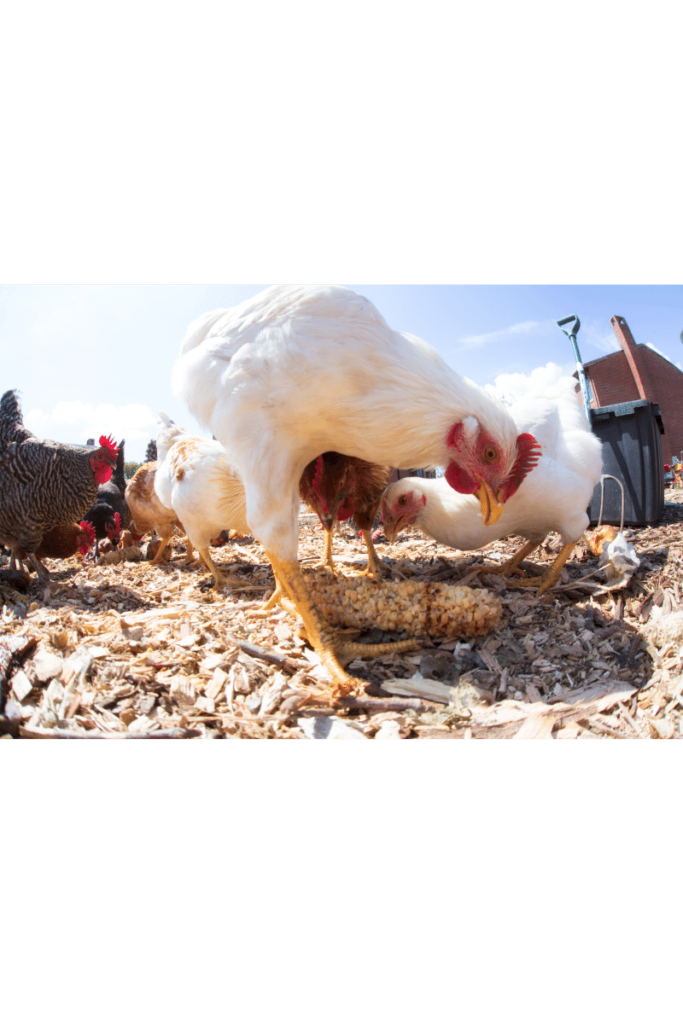
Conclusion
Feeding your backyard chickens a balanced, nutritious diet is fundamental to their health and productivity. By understanding the basics of chicken nutrition, providing a mix of commercial feeds and natural supplements, avoiding toxic foods, and adjusting feeding strategies with the seasons, you can ensure your flock thrives. Remember, a happy, healthy chicken is a productive chicken, and with the right care and nutrition, your backyard flock will provide enjoyment and fresh eggs for years to come.
Maintaining optimal health for your backyard chickens involves a commitment to understanding and meeting their nutritional needs. With the information provided in this blog, you’re well-equipped to make informed decisions about your chickens’ diet, ensuring they remain healthy, happy, and productive. Whether you opt for commercial feeds, natural diets, or a combination of both, the key is to offer a balanced diet enriched with all the necessary nutrients. Remember, your efforts in providing the best possible care will be rewarded with the joy of keeping a vibrant flock and the bounty of fresh eggs.

